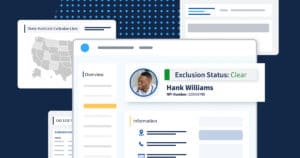Preventing Healthcare Fraud and Abuse:
Did you know companies spend millions on educating staff how to avoid it, detect it and report it? Is your staff is aware of when fraud exists, are they aware of how and to whom they can safely report it internally?
You better know the answer and it needs to be clear they feel safe reporting it for you to investigate and handle. Otherwise, they will be whistling while they work – but to a tune you will not like and can cost your organization millions.
Companies need to place an importance on training and on having policies in place to both educate its staff, provide a safe haven and an ear for reporting, and investigate the potential fraud. Hopefully, the company can investigate it timely and inform the employee of its importance and progress toward a resolution. If not, employees have another avenue to report it – directly to the Department of Justice or the HHS OIG. Then the matter takes an entirely different turn.
An effective compliance plan will contain, among other items, a section on education/training. Effective training includes not just education on compliance but also on the types of fraud that exist in healthcare. Further, your compliance training should provide a clear message of how and to whom an employee can report suspected fraud. Most companies also provide a compliance hotline for added measure of confidence and discreet disclosure. All of these are important as long as (i) your compliance department follows through with the necessary investigation and an ear for confidence, and (ii) proper redress and/or corrective action takes place contemporaneous with the final outcome.
If an employee does not know the way to confidentially report suspected fraud or does not trust that corporate cares about doing the right thing (think of an organization like Enron whose senior leadership did not care about compliance or demonstrate ethical behavior), then they will be enticed or forced to go to the government to “tell all.” This puts the company and, in particular, your compliance department in a terrible position and under scrutiny.
Healthcare whistleblowers are incented further by collecting a percentage of any recovery the government obtains in a settlement or verdict against the company. The recovery can approach 25% and more. The government has determined it is better to hear about fraud from an employee than not at all. So if the company does not know about the healthcare fraud or is hiding it from regulators, the fraud continues. Like it or not, sharing in the recovery of dollars incents an employee who is trying to do the right thing. Especially if they feel as if the company does not care about them or the issue.
So, the next time you walk the halls and hear an employee whistling – ask yourself, are they happy or have they just reported to the government? That whistle could cost you millions.

Written by Michael Rosen, ESQ
ProviderTrust Co-Founder, mrosen@providertrust.com
Michael brings over 20 years of experience founding and leading risk mitigation businesses, receiving numerous accolades such as: Inc Magazine’s Inc 500 Award and Nashville Chamber of Commerce Small Business of the Year
Connect with Michael on Linkedin









